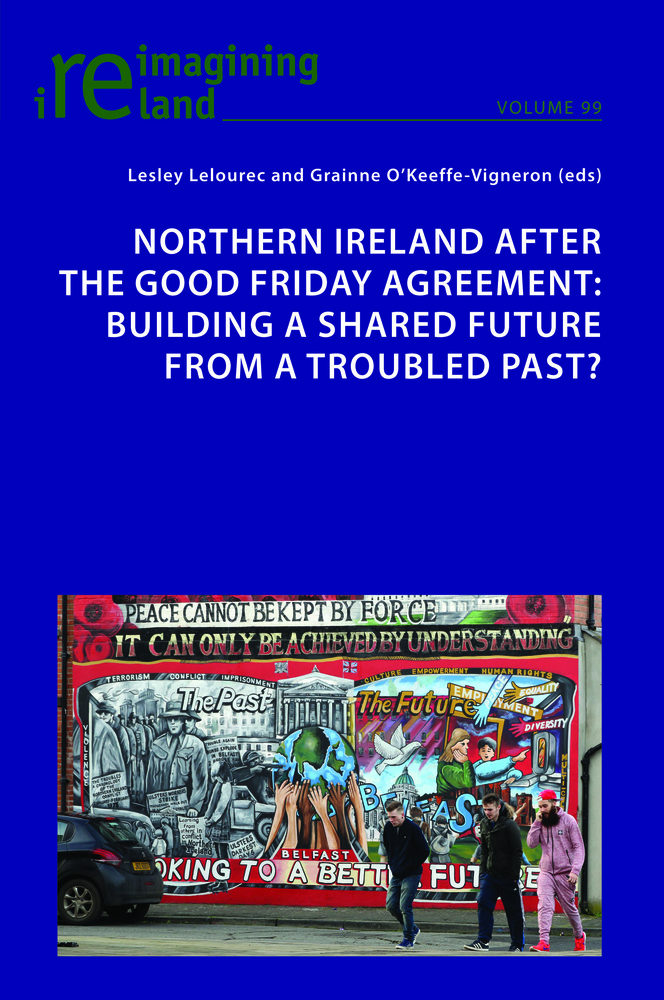
Préface de Jon Tonge, Professor of Politics, University of Liverpool
Lesley Lelourec and Gráinne O’Keeffe-Vigneron deserve huge congratulations for assembling one of the most important recent collections on Northern Ireland. As the country celebrates its centenary, the significance of this volume is that it highlights the intersections of politics, history and culture that have made its hundred years so contested. Contributions from a team of acknowledged world-leading experts in their fields indicate why predictions that Northern Ireland will also enjoy a bicentenary might be brave.
The tone of the book is constructive but realistic throughout. Its historical analyses show that, episodically, cross-community solidarity, challenging sectarian rivalries, is both achievable and celebrated, as Eva Urban’s analysis of theatrical depictions of such bonding in the 1930s amply demonstrates. Equally, however, the volume does not shy away from the difficulties of replicating that famous, but temporary, dissipation of animosities on a permanent basis.
Instead, the book offers a series of assessments of the complexities of power-sharing in a polity which acknowledge the difficulties, given how ultimate constitutional futures cannot be agreed. The contributions offer constructive ways in which disagreement might be handled positively, on the basis of reconciliation, equality, parity of esteem and mutual respect for British unionist and Irish nationalist traditions (and those not aligned to either). Diminishing the binary is tough work. Tim White’s positive assessment of the Good Friday Agreement – a peace deal which, it ought to be remembered, is lauded around the world – indicates his belief that the deal’s framework is one which will allow the reconciliation which consociational deals are often criticised as not providing. On this reading, managing a conflict and reconciling it are not mutually exclusive. Positive power-sharing between representatives of rival ethno-national traditions will impact usefully upon grassroots antagonisms.
Whilst not dissenting, John Brewer’s more sociological analysis questions whether the degree of commitment towards rapprochement among politicians and people is sufficient to make things work. As with all deals, there are winners and losers. In considering the difficulties of the 1998 Agreement’s key architects, the SDLP (Social Democratic and Labour Party), Philippe Cauvet illuminates the difficulties besetting the politics of moderation. The deal instead rewarded, via their release from prison, those ‘combatants’ who had fought the ‘war’. Whilst their recidivism is low, the same can be said for their revisionism, according to Stephen Hopkins’ analysis. The shift from conflict has not led to a fundamental reappraisal among former prisoners of why they participated.
Occasionally, the eclecticism of edited volumes is a weakness. Here, it is a major strength, allowing the contributors to associate the strength of historical memory with contemporary disputes, whilst acknowledging the positive contributions made to community identities by remembrance and learning. Thus, the contributions of Jim McAuley and Aaron Edwards highlight the extent to which loyalist communities and organisations bond via shared interpretations of the past, but also limit how collective loyalist memory can accommodate the different versions of history offered by republicans. Three potential vehicles by which a community or organisation might be understood better by rivals and opponents are books, museums and the arts, which make the considerations of the value of each, by David Clark, Katie Markham and Laurence McKeown respectively, particularly valuable.
The sum of these parts is a wonderful, genuinely interdisciplinary and thoughtful volume, reliant upon evidence not mere assertion. The pleasure in reading lies in its breadth and the capacity of well-informed and astute contributors to challenge lazy orthodoxies, whilst not being controversial merely for the sake of controversy. This is a book which ought to be read by anyone with an interest in Northern Ireland’s past, present and future.
